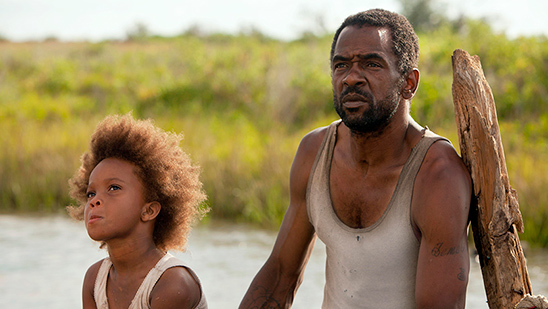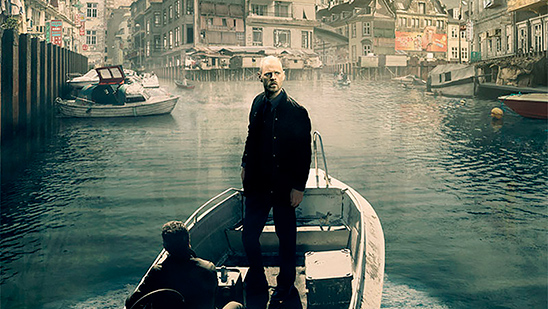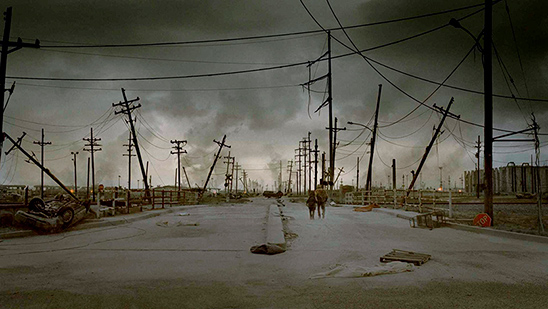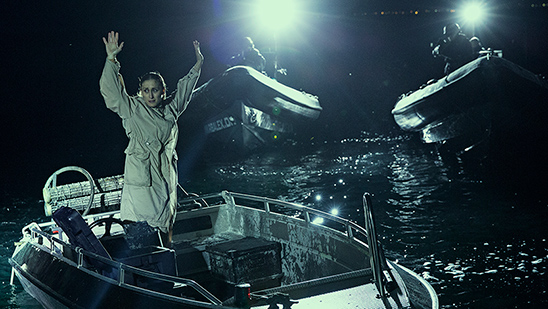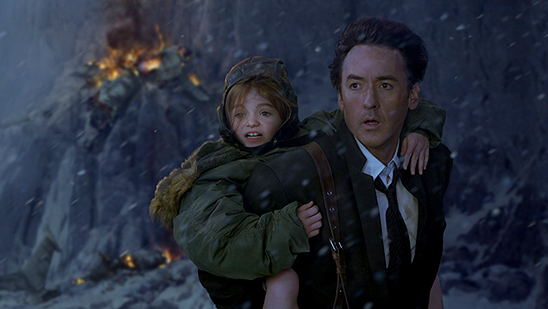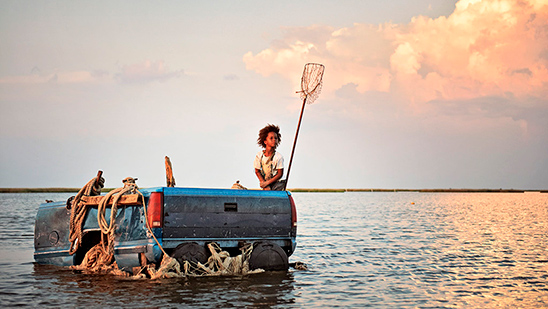The emerging Hollywood genre of ''cli fi'' continues to capture the world's imagination. This blog serves as media outreach. For more info write: danbloom@gmail.com and see ''THE CLI-FI REPORT'' at http://cli-fi.net
Tuesday, October 30, 2018
The arrival of ‘Warmer’ -- 7 new works of short 'cli-fi' stories -- signals 'Amazon Original Stories' interest in social/literary relevance. - #Clifi News via Publishing Perspectives' CEO .@Porter_Anderson - https://publishingperspectives.com/2018/10/amazon-original-stories-introduces-cli-fi-collection-with-literary-studio-plympton/?utm_source=dlvr.it&utm_medium=facebook / goo.gl/fb/j3nmn9
The arrival of ‘Warmer’ -- 7 new works of short 'cli-fi' stories -- signals 'Amazon Original Stories' interest in social/literary relevance. - #Clifi News via Publishing Perspectives' CEO .@Porter_Anderson - https://publishingperspectives.com/2018/10/amazon-original-stories-introduces-cli-fi-collection-with-literary-studio-plympton/?utm_source=dlvr.it&utm_medium=facebook /
Monday, October 29, 2018
Introducing India's brilliant novelist and short story writer Shubhangi Swarup
Introducing India's brilliant debut *novelist* and short story writer Shubhangi Swarup - blog post by literary blogger Danny Bloom in Taiwan - https://korgw101.blogspot.com/2018/10/margaret-e-atwood-margaretatwood-tweeted.html #India #SubhangiSwarup #LattitudesOfLonging
Introducing India's most brilliant novelist and short story writer Shubhangi Swarup
"Last night, my wife accused me of being menopausal. She said that I was having a midlife crisis, and I needed help. The truth is, I don’t know any better," the mesmerizing Indian writer Shubhangi Swarup 's short story "Confessions of a Menopausal Man" begins. "I’m a responsible man. I have quadrupled my parents’ financial portfolio over the years. I don’t let my wife go alone to the gynaec, as I know they scare her, those swabs and prods. So what if I go drinking with my buddies, leaving her alone with the baby, I know when his next vaccination is due! It’s on my Google calender."
A novelist, a journalist, a racounteur and a great interview subject herself (see the charming YouTube interview with her here), Swarup wrote "Confessions of a Menopausal Man" from the point of view of a man, and if you read the story online here, you will be amazed her fluid and fluent dexterity in putting herself into the voice of a male narrator. I read the story the other day and was blown away by its approach to gender.
“The rise of a single degree may have caused the catastrophe, but when all life vanishes, it feels oddly cold” is how one reviewer described this very original short story, adding: "Shubhangi Swarup examines the psyche of a man who finds himself nurturing a young life at a time when the planet is sending strong warnings to humanity."
Do read the story here.
And see a charming video interview with the author by TV host Sharin Bhatti here.
and here:
https://youtu.be/tjqG2FLjPtc
Shubhangi Swarup was born in 1982 in India. She is now a bestselling novelist, too. "Latitudes of Longing," her well-received first novel, came out in 2018 and garnered a host of appreciative reviews. The manuscript faced many obstacles before one enterprising publisher took a gamble on it.
"I wanted to use my first chapter [in my novel] in the application for a fellowship but I was told that it lacked flow. This naturally upset me," Swarup good-naturedly told an interviewer, explaining that at first like many first-time novelists she faced an uphill battle in finding a publisher. But what was initially a disjointed and disconnected way of telling a story, staccato almost, eventually became her strength.
"The words on the page would freeze up when I tried to impose my will," she admitted. So she just went with the flow and the flow won.
The 36-year-old writer's debut novel has now taken the Indian literary community by storm, and has also been sold to several countries in translation in French, Swedish and Norwegian, among others. This is the making of a major Indian literary debut which won the Tata Literature Live First Book Award in 2018. It's only available in English now, but it could reach a global audience soon since it's set to come out in several foreign languages, according to book industry sources in New York.
Publishers Weekly, a major trade magazine in the English-speaking world, gives the novel high marks, nothing that Swarup's book "depicts a sweeping view of the Earth through the lives of interconnected characters, including a scientist who studies trees and a clairvoyant who speaks to them.” Translation rights have already been sold to publishers in France, Norway and Sweden, with more to come, PW said.
Could a Hollywood movie be far behind? If Yann Martel's bestseller "Life of Pi" was turned into a movie by master director Ang Lee of Taiwan, surely a movie option for Swarup's debut wonder is being talked about by Hollywood producers as we speak. It's that good, and has wild cinematic possibilties.
"The writing is exquisite and [Swarup] tells a compelling story, beginning at the beginning and ending at the end, the way good old stories used to run," wrote Indian book reviewer Latha Anantharaman. "Lyrical, original and heartbreaking, 'Latitudes of Longing' is a vast novel. In order to write in such detail about so many global locations, the author obviously had to do a great amount of research, and yet it has the ring of total authenticity. A wonderful book which, with landscape, Earth and sea as principal characters, seemed to invent a genre all of its own.''
Call it Indian ''magical surrealism.''
"A brilliant debut that blends natural with supernatural, human with otherworldly," said another reviewer in Mumbai.
If there is just one Indian novel you read in 2019, let it be this one. It will broaden your horizons, wherever you live.
============================
Bonus extra added:
Margaret E. Atwood (MargaretAtwood) tweeted at 0:57 PM on Tuesday, January 26, 2016: ''A Talk with a Cli-Fi Activist'' https://t.co/8Lto41eKgX
(https://twitter.com/MargaretAtwood/status/691847356287991810?s=03) #CliFi
Ryan Kwanten & Kodi Smit-McPhee Lead Oz Cli-Fi Thriller ‘2067’; Shoot is Underway; Kew Has Inked North America Deal
Ryan Kwanten & Kodi Smit-McPhee Lead Oz Cli-Fi Thriller ‘2067’; Shoot is Underway; Kew Has Inked North America Deal
Cli-fi movies are coming to Australia now.
Yes, an Australian cli-fi thriller titled 2067 is in production now and set for release Down Under and worldwide in 2019.
It's a climate change cli-fi-thriller. Australian writer and director Seth Larney is writing and directing ''2067,'' a feature about humans looking to the future for answers after the planet’s forests, wildlife and plants are ravaged by climate change. Ryan Kwanten (True Blood) and Kodi Smit-McPhee (X-Men Apocalypse) lead a cast that includes Deborah Mailman, Aaron Glenane, Damian Walshe-Howling, Leeanna Walsman, Finn Little, Sana’a Shaik and Matt Testro.
“This is an elevated cli-fi story that is very much character driven, and this is where having actors of this caliber and gravitas pay great dividends. We’re happy to introduce a film we believe has great breakout potential,” Jonathan Ford, EVP of Sales, Distribution at Kew Media, said.
Principal photography on ''2067'' began earlier in the summer of 2018 at Adelaide Studios in South Australia.
Also starring are Deborah Mailman (The Sapphires), Aaron Glenane (Killing Ground), Damian Walshe-Howling (Mystery Road), Leeanna Walsman (Safe Harbour), Finn Little (Storm Boy) and Oz newcomers Sana’a Shaik and Matt Testro.
Seth Larney (Tombiruo) is writing and directing the feature which will see humans looking to the future for answers after the planet’s forests, wildlife and plants are ravaged by climate change. Producing are Lisa Shaunessy (Killing Ground) through her Arcadia production banner, and Kate Croser of Kojo Entertainment.
Kew Media Distribution, part of Kew Media Group, is handling international sales, excluding Australia and New Zealand where Umbrella Entertainment has distribution rights. Shout! Studios has acquired all North American rights. The film started principal photography at Adelaide Studios, South Australia on November 3.
Australian Government funding and investment partners on the film include Screen Australia, South Australian Film Corporation (SAFC) and Create NSW (New South Wales). Executive producers are Michael Rymer (Battlestar Galactica), Alexandra Burke, Craig McMahon, James Boyce and Claire Evans, Jeff Harrison and Ari Harrison, Josh Pomeranz and Adam Scott, Will Gammon, Bryce Menzies and Clement Dunn.
Jonathan Ford, EVP of Sales, Distribution at Kew Media said, “The story of 2067 is enough to excite cli-fi fans worldwide but when you add actors like Kodi, Ryan, Deborah, Damian and Leeanna, the meter rises even higher and audiences expect something very special, which is what will be delivered here. This is an elevated sci-fi story that is very much character driven, and this is where having actors of this caliber and gravitas pay great dividends. We’re happy to introduce a film we believe has great breakout potential.”
Kodi Smit-McPhee is represented by ICM Partners. Ryan Kwanten is represented by RGM Artists, WME and Link Entertainment. Deborah Mailman, Damian Walshe-Howling and Leeanna Walsman are represented by Sue Barnett and Associates.
Seth Larney, who has spent most of his career on the digital management and effects side of pics working on titles such as The Matrix Reloaded and Star Wars: Revenge of the Sith, will direct from his own original screenplay. Lisa Shaunessy (Killing Ground) and Leonie Mansfield of Arcadia will produce with Buffalo Gal Pictures’ Phyllis Laing, Kojo Entertainment’s Kate Croser with Michael Rymer exec producing.
2067 is described as an elevated cli-fi mystery thriller set against the backdrop of a world destroyed by climate change. After years of doing too little to reverse the damage to the environment, humans are paying a terrible price – forests, plants and wildlife are gone, and soon humans will be too. With no cure in sight, the only place humanity can look for help is to the future.
Sunday, October 28, 2018
17 #FREE cli-fi movies online The first English cli-fi movie series for Cinemateket online from Denmark
17 #FREE cli-fi movies online The first English cli-fi movie series for Cinemateket online in Denmark: A series of Hollywood cli-fi films in which the action is dictated by climate (change). Fiction or reality? Come see them here, free.
https://www.dfi.dk/cinemateket/biograf/filmserier/serie/cli-fi
FILM I SERIEN
Saturday, October 13, 2018
When Elena Ferrante speaks, the world listens: "I'm worried about climate change!"
World-famous Italian novelist Elena Ferrante writes a weekly literary column in The Guardian newspaper in London now, translated each weekend by Anne Goldstein, and recently she turned her attention to, yes, man-made global warming. Runaway global warming. Global warming that threatens the very future of humankind on this Earth.
"I never worried about the weather -- until now," Ferrante confessed.
"I never worried about weather: heat, humidity, wind, rain, snow, cold -- the more I was outside, the better," she added. "The seasons were time running pleasantly in a circle, like a happy dog chasing its tail.''
But all that changed, she explained to Guardian readers worldwide, when a few decades ago she began to look into the various issues surrounding climate change.
Of her reading of numerous climate change news articles and books, she said it led her to start worrying, for the first time in her life, about the fate of our planet.
"At first [what I was reading] seemed to be a kind of reactionary pessimism: increase in the greenhouse effect, global warming, rising ocean temperatures, melting glaciers, the end of the world on the horizon." she wrote. "I read in my usual way, wanting to understand and form an opinion, but also to fantasize. In fact I didn’t understand much, I didn’t fantasize much. Was it possible the ultimate devastation of the planet was among the many devastations caused by the human race? Was it possible the animal man, that infinitesimal piece of nature, in the course of our brief history had managed to irreversibly damage all the rest?''
As a young girl in Italy, Mrs Ferrante recalled that she learned that, while progress was unlimited, not everyone enjoyed its fruits. The rich, yes. But not the poor, the disenfranchised, the hopeless.
She confessed that she felt when she was younger that if only ''the means of production and consumption'' could be straightened out, things would advance in a just manner for the rich and thee poor, for everyone. So as a teenager and a young adult, she calmed herself, by, she admits "embracing the idea that climate change had always been there and that humans had very little to do with its latest manifestations.
"[But it was] all very wrong," she says now. "I kept reading, and I repented."
And now, in 2019?
"I’ve become obsessive,"Ferrante says, adding a string of words that have been picked up on Twittter by climate activists and scientists around the world now: "I repeat to friends and relatives: the sea level is rising, the ice is melting, greenhouse gases are increasing, the atmosphere is warming, and it’s our fault, the fault of the way of life and production imposed on us. It has to be changed immediately."
And the kicker hits hard: "Mainly, [I must confess that] my lighthearted pleasure in the seasons has disappeared. Now I hate these eternal summers, I’m afraid of the furious heat that starts early and won’t end. And the black skies with the rain cascading down terrify me, making streets into rivers, burying people and things under the mud."
When Elena Ferrante speaks, the world listens.
=====================================================
BONUS ADDED POST-SCRIPT:
TRANSLATOR Ann Goldstein's Elsa Morante Moment
Ann Goldstein talks about her new translation of Elsa Morante’s classic novel, Arturo’s Island
By Wendy Smith |
Nov.9
2018
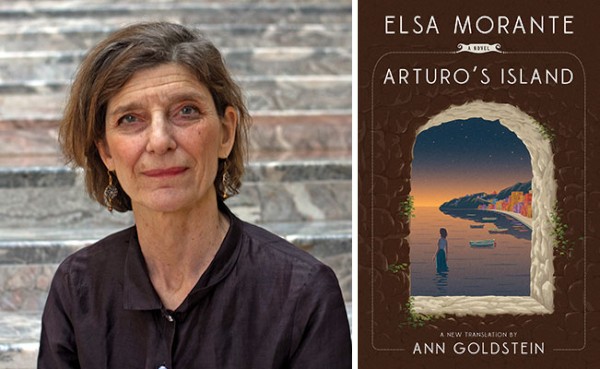
Ann Goldstein’s dog is not happy about having a visitor. As Goldstein opens the door to her Greenwich Village apartment, an elderly corgi appears by her side, barking furiously. Before we can discuss Goldstein’s distinguished career as a translator of Italian literature, Tomaso must be placated with a few tosses of his favorite toy, after which he keeps a suspicious eye on me as we stand in her kitchen while she makes espresso. Watching Goldstein gently soothe her anxious pet makes it easy to understand why she found it distressing to translate the passage in Elena Ferrante’s The Days of Abandonment describing the death of the narrator’s dog.
Goldstein also translated Ferrante’s subsequent Neapolitan Novels quartet, whose success led indirectly to Goldstein’s latest project. “Coming off ‘Ferrante fever,’ it seemed like this was a good time for translating Italian women writers, and Morante is a great writer who is not well known here,” she says, finally seated in her book-lined living room with Tomaso panting quietly at her feet.
Article continues below.
RELATED STORIES:
- PW issue Contents
- More in Authors -> Profiles
FREE E-NEWSLETTERS
Elsa Morante (1912–1985) was a prominent figure in postwar Italian literary circles. In 1957, she won the prestigious Strega Prize for Arturo’s Island, which Liveright will publish in Goldstein’s new translation in February. Set on the island of Procida, off the coast of Naples, the novel chronicles the painful coming-of-age of a 14-year-old boy who slowly discovers that his adored father has shameful secrets, while the young stepmother he once despised shows unexpected strength and resolve.
“It was Bob Weil’s idea,” Goldstein says. “We had such a good time working together for 11 years on the collected works of Primo Levi that we said, ‘Let’s find something else.’ He looked into the Morante situation, and this was the one that was available. Actually, Jenny McPhee is doing her other big early novel, Menzogna e sortilegio [Lies and Sorcery, Morante’s debut], for New York Review Books, so we’re having a little Morante moment. What struck me most about Arturo’s Island was, here’s this woman, in her second novel, writing in the voice of a 14-year-old boy about a place she doesn’t really know; she’d stayed on Procida for a while, but it wasn’t her native place the way Rome was. I found the book astonishing and difficult; I didn’t realize that until I started translating, which happens all the time. In this case, Morante’s sentences are very complicated and full of words—there are so many words! Arturo describes his emotions, physical reactions, and the physical manifestation of emotions in so much detail. In Italian, that’s fine, you can be a little bit dramatic, but in English, to get all those details in without sounding melodramatic, to make it sound good and reasonable—I found that hard.”
When I ask Goldstein whether she discussed her difficulties with Weil, she shakes her head. “I didn’t talk to anybody; I just grappled with the words. I’m always mostly worried about the words. To me, fidelity is the most important thing, but fidelity does not necessarily mean literal. Primo Levi, who translated Kafka from German, says, I think in his introduction to The Trial, that he tries to steer a middle course between word-for-word literalness and something that really has nothing to do with the text. He goes on to say that what a translator has to have to find that middle ground is something called ‘linguistic sensibility.’ I think what he means is a feeling for the original text that is conveyed in some way that is not exactly literal, but it is the text—it’s not taking off from the text.”
Goldstein, who retired in 2017 after more than four decades in the New Yorker’s copy department, fell into her parallel career as a translator more or less by accident. Beginning in 1987, she studied Italian with other New Yorker staffers in an after-hours class; they read Dante for two years, and the class eventually morphed into a conversation group with their teacher. In 1992, when a short story by Aldo Buzzi, “Chekhov in Sondrio,” was submitted to the magazine in Italian, then-editor Bob Gottlieb asked Goldstein to read it, and she decided on the spur of the moment to translate it. The New Yorker published the story, and Goldstein went on to receive PEN’s Renato Poggioli Prize for her rendering of Buzzi’s collection, Journey to the Land of the Flies.
“I was totally surprised to find it as a second career, but I was glad about it,” Goldstein says. “Translators and copy editors share certain qualities: attention to words, attention to language, attention to the style of the writer—even though people always say everyone in the New Yorker writes the same, they actually don’t.”
Goldstein worked under four editors: William Shawn, Tina Brown, Gottlieb, and David Remnick. “The New Yorker was a very eccentric place when I started in the ’70s, but it became less eccentric. Now, it’s different—more like other magazines. David had to make it survive, and he did that very well. But it’s kind of too bad that it had to lose something in order to survive.”
Asked if she ever thought about giving up her day job, Goldstein replies, “How could I? You can’t afford to live on translations. Almost all translators have other jobs. PEN did a study last year; they surveyed all the member translators to get a sense of what people were paying and whether they paid royalties. It wasn’t very inspiring. A lot of publishers won’t give royalties at all—not that you expect that you’re ever going to get anything, but you want the acknowledgment. Many of the publishers that do translations are small and don’t have any money. I always said my New Yorker job supported my translating habit.”
Goldstein did get royalties in her contracts with Europa, Ferrante’s publisher. “I had them only as a matter of principle,” she says. She doesn’t go into detail, but presumably the Neapolitan Novels’ bestselling success eased her move into retirement—from copyediting. She’s busier than ever as a translator, she says ruefully.
“Things happen,” Goldstein adds. “Like Ferrante’s columns in the Guardian and her screenplays for the television series; I translated all of those. There’s been a lot of stuff like that. You don’t expect it, but you don’t want to say no. I’m currently translating a very strange book called The Fragile Landscape, about these lost villages in Italy. It probably won’t have a publisher until I finish the translation and show it to people, but I thought it sounded so interesting. Then I’m translating this book called Ten Lessons on the Classics, which is fun because it’s like being able to read The Odyssey, The Iliad, Virgil, Ovid all over again. Then I’m going to be starting on the book that won the Strega prize this year, Girl with a Leica, about a young woman photographer who was killed at the beginning of the Spanish Civil War. It’s way too much! I am always getting myself into these situations of having too much to do. If somebody has an idea and it looks interesting, I’m in.”
A version of this article appeared in the 11/12/2018 issue of Publishers Weekly under the headline: A Morante Moment
AFP news article taken from the TIMES OF INDIA print newspaper (screen shot)
ENGLISH VERSION IS HERE:
https://au.news.yahoo.com/climate-change-fiction-novelists-aim-radical-empathy-094854718--spt.html
FRENCH AFP VERSION IS HERE:
https://www.la-croix.com/amp/

Subscribe to:
Comments (Atom)

